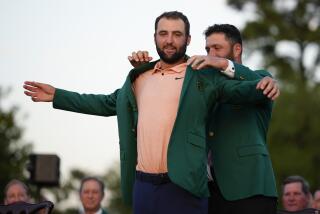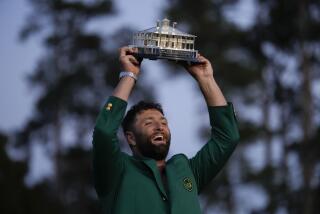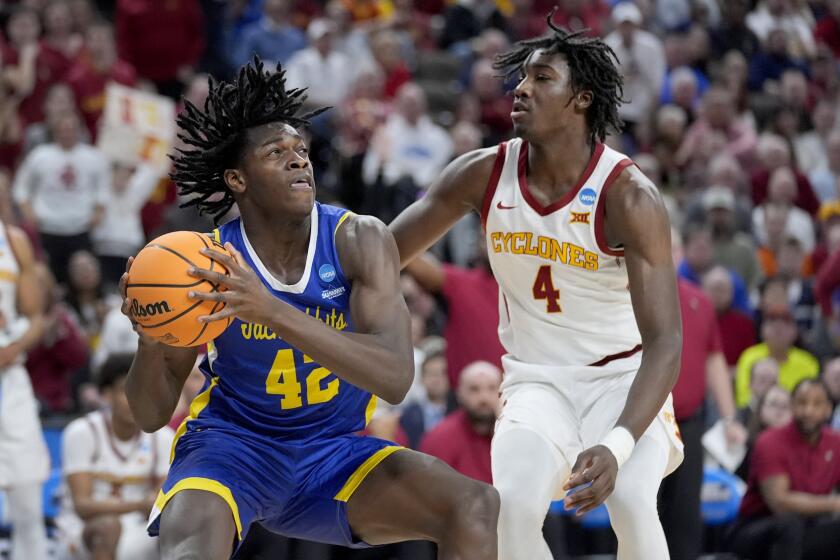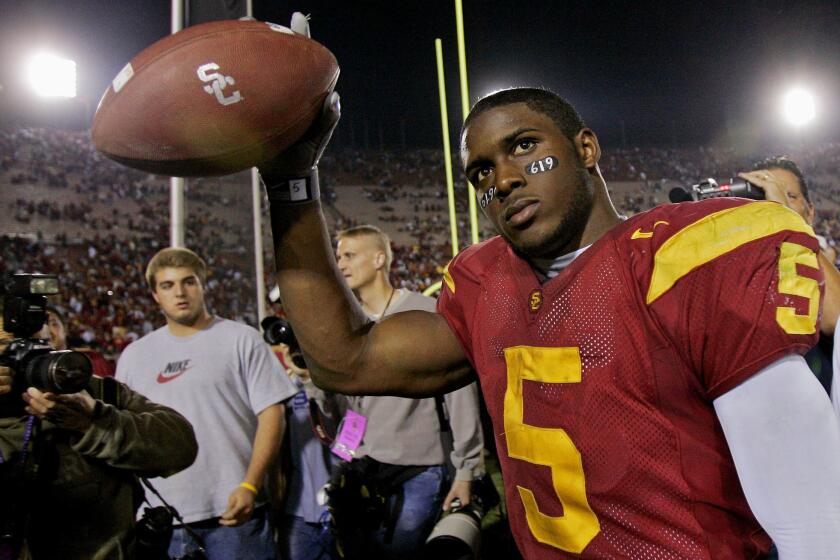Masters is so much more than golf, and that’s the way it should be
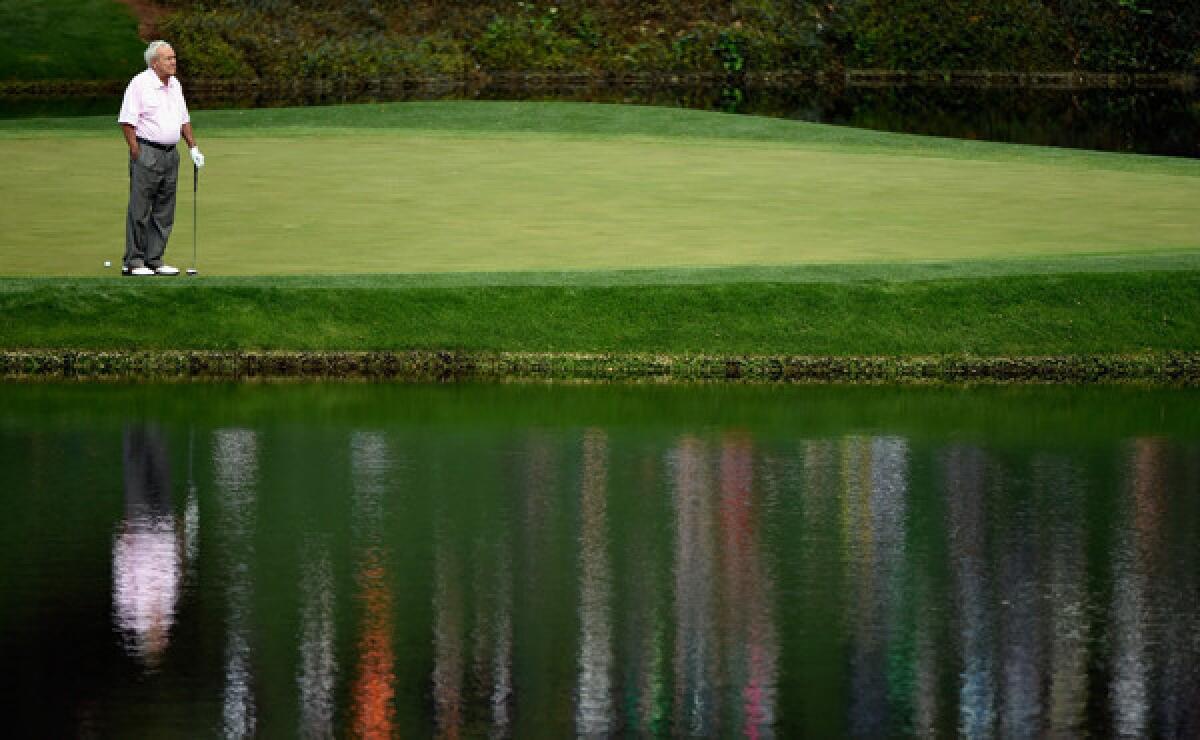
AUGUSTA, Ga. — It was a quiet, nondescript moment deep in the pine trees at the end of a sunny practice round. It was a moment unspoiled by smartphones or smart alecks. It was the perfect Masters moment.
At a spot where fans could cross the 18th fairway Wednesday afternoon, the marshals did not spot any oncoming golfers and dropped the ropes. But the fans didn’t move. In the distance, they could hear a shuffling and a whistling, and so they waited. And waited.
Finally, coming down the hill, with no caddie or entourage, accompanied only by his twirling golf club, was smiling former Masters champion Angel Cabrera.
He was close enough for fans to touch him, but nobody did. He could have easily heard any sort of heck or cheer, but nobody said a word. The fans politely watched him pass, and then carefully crossed the fairway behind him.
It’s like that here. It’s forever 1950. It’s the last major American sporting event dominated not by bluster, but respect.
This week’s 78th Masters at Augusta National is not about the players, as it will continue in earnest with 24 rookies and without Tiger Woods. It is not about the course, as many of its trees were stripped of branches during this winter ice storms, the famous Eisenhower Tree on the 17h fairway being so badly damaged it was turned to kindling.
This week’s Masters, like every Masters, is about far more than the golf. It’s about a four-day journey into the way sporting events used to be, should be, could be, but can never be again.
Yes, even though the club now has active African American and female members, it is hard to forget that for years this place was run like a Southern plantation. Beyond a history that its officials are trying to move past, there lies a delightful throwback of an event that strives to remain as unchanged as those giant magnolias.
The Masters is about the cellphones. Officials don’t just tell you to turn them off, they order you to get rid of them, now. Cellphones aren’t allowed anywhere on the course, so fans hand their expensive new toys to workers outside the front gate, and retrieve them when they leave, and where else does that happen?
With no phones, there are no selfies, no loud conversations, no distractions. There is nothing happening here but fans watching golf, and it’s amazing how well-mannered crowds can become when it’s not about them.
You need to make an emergency call to check in with the boss or the kids? No problem. In the main fan gathering courtyard, there is a bank of 24 phones offering free long distance calls. Seriously.
The Masters is about running. There is none. It’s specifically against the rules. No jogging to catch up to Phil Mickelson’s group. No loping across open grassy areas to hurriedly buy one more beer. Fans have been thrown out for running, which means everyone strolls, which means the vibe here is one of a beautiful park that just happens to be inhabited by the world’s best golfers gnashing their teeth.
The Masters is about bathrooms. If there is a line at a bathroom, an official will stand outside and inform fans of the wait time — it was “10 to 15 minutes from this spot,” said one Wednesday. At one bathroom near the golf shop, several workers stand outside offering to hold the shopping bags for fans while they go inside. Seriously.
There is also a story in those souvenirs, mostly famous green shirts and caps adorned with a little yellow logo, much of it costing $50 or less. There is a reason the golf shop is the most visited place on the course. You can’t buy this official stuff, at these prices, anywhere else. Augusta National does not sell golf’s most famous souvenirs online.
The entire grounds are a souvenir, really, stately white brick buildings set among rolling hills, towering pines and flowers bursting out in rainbows . But it’s the smallest touches that stand out. The sheets of papers containing the pairings and starting times are available in little green-and-white mailboxes. The ATM machine is located in a well-appointed hut that could sleep one. Even some water fountains are built within stone monuments filled with plaques honoring past record holders. And everything is spotless, with the trash thrown in plastic bags adorned with the words, “Please, please, please.”
More than anything, the Masters is about a different era. It’s the toughest ticket in sports, but if you can buy one through the club’s lottery, it costs only a fraction of the cost of major sporting events — only $50 for a practice round and $75 for a regular round.
Once inside, the costs and presentation of food is even more wonderfully antiquated. A regular-sized bottle of water is $1.50. A ham and cheese sandwich is $2.50. There is only one thing on the concessions menu that is more than $3, and that’s the $4 beer. And, really, where else can you get a Georgia Peach ice cream sandwich and wash it down with a big plastic cup of sweet tea that epitomizes the tourney itself?
It’s a bit syrupy, a bit saccharine, but, man, on a sports-weary weekend between the start of baseball season and the beginning of the NBA playoffs, it hits the spot.
Twitter: @billplaschke
More to Read
Get our high school sports newsletter
Prep Rally is devoted to the SoCal high school sports experience, bringing you scores, stories and a behind-the-scenes look at what makes prep sports so popular.
You may occasionally receive promotional content from the Los Angeles Times.
